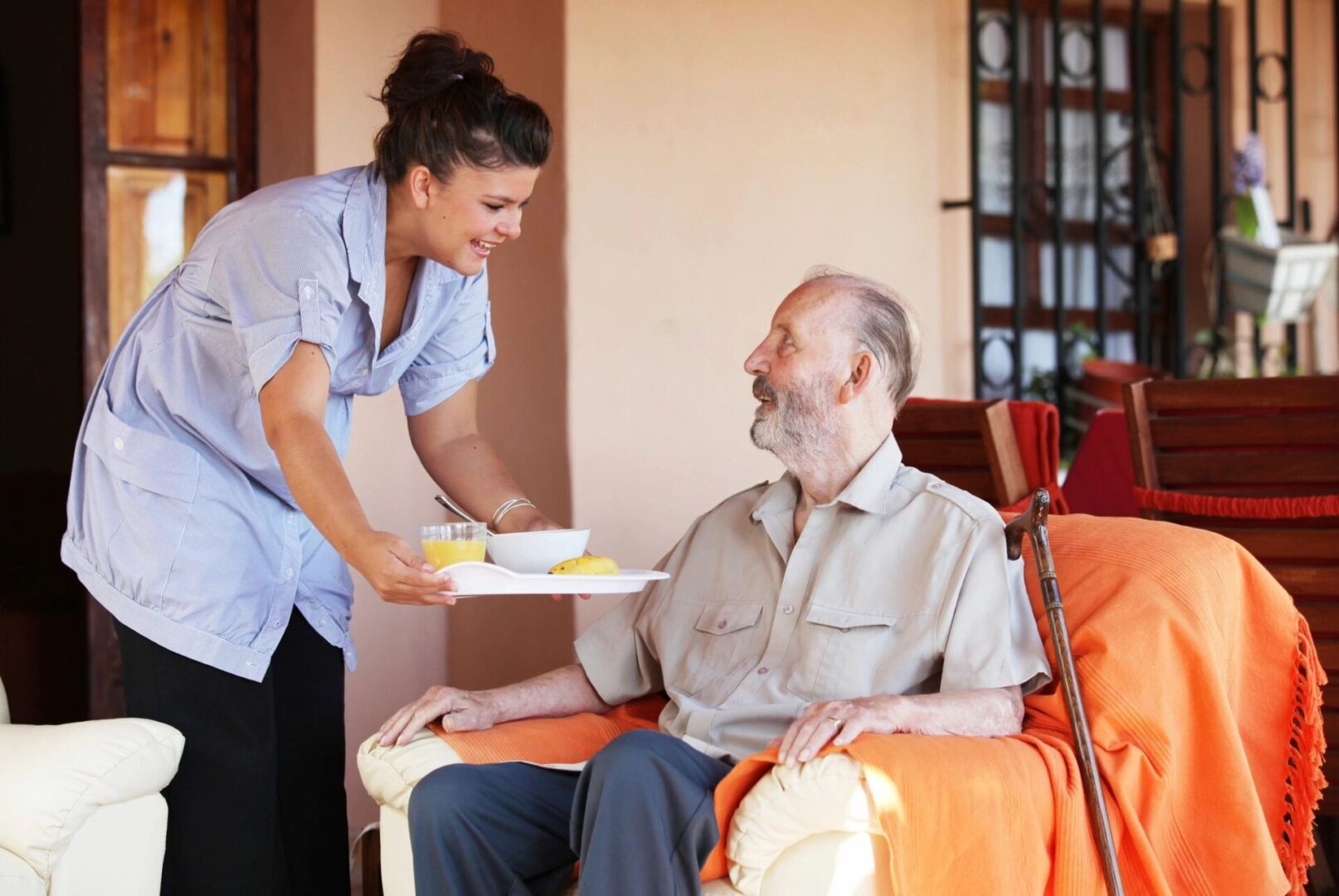A caregiver, sometimes called a caretaker, refers to anyone who provides care for another person. Millions of people living in the United States take care of a friend or family member with Alzheimer’s disease or related dementia. Sometimes caregivers live with the person or nearby. Other times they live far away. For many families, caring for a person with dementia isn’t just one person’s job but the role of many people who share tasks and responsibilities. Caring for another person can sometimes be overwhelming, no matter what kind of caregiver you are. These tips and suggestions may help with everyday care and tasks.

Tips for Everyday Care for People With Alzheimer’s / Dementia
Early on in Alzheimer’s and related dementias, people experience changes in thinking, remembering, and reasoning that affect daily life and activities. Eventually, people with these diseases will need more help with simple, everyday tasks. This may include bathing, grooming, and dressing. It may upset the person to need help with such personal activities. Here are a few tips to consider early on and as the disease progresses:
- Try to keep a routine, such as bathing, dressing, and eating at the same time every day.
- Help the person write to-do lists, appointments, and events in a notebook or calendar.
- Plan activities that the person enjoys and try to do them at the same time every day.
- Consider a system or reminders for helping those who must take medications regularly.
- When dressing or bathing, allow the person to do as much as possible.
- Buy loose-fitting, comfortable, easy-to-use clothing, such as clothes with elastic waistbands, fabric fasteners, or large zipper pulls instead of shoelaces, buttons, or buckles.
- Use a sturdy shower chair to support an unsteady person and to prevent falls. You can buy shower chairs at drug stores and medical supply stores.
- Be gentle and respectful. Tell the person what you will do, step by step while you help them bathe or get dressed.
- Serve meals in a consistent, familiar place and give the person enough time to eat.
Changes in Communication and Behavior for People With Alzheimer’s / Dementia
Communication can be challenging for people with Alzheimer’s and related dementia because they have trouble remembering things. They also can become agitated and anxious, even angry. In some forms of dementia, language abilities are affected such that people have trouble finding the right words or speaking. You may feel frustrated or impatient, but it is important to understand that the disease is causing the change in communication skills. To help make communication more manageable, you can:
Need Help with Home Care? Call Us Today
- Reassure the person. Speak calmly. Listen to his or her concerns and frustrations. Try to show that you understand if the person is angry or fearful.
- Allow the person to keep as much control in his or her life as possible.
- Respect the person’s personal space.
- Build quiet times into the day, along with activities.
- Keep well-loved objects and photographs around the house to help the person feel more secure.
- Remind the person who you are if he or she doesn’t remember, but try not to say, “Don’t you remember?”
- Encourage a two-way conversation for as long as possible.
- Try distracting the person with an activity, such as a familiar book or photo album, if you are having trouble communicating with words.
Home Safety for People With Alzheimer’s / Dementia
As a caregiver or family member to a person with Alzheimer’s or related dementia, you can take steps to make the home a safer place. Removing hazards and adding safety features around the home can help give the person more freedom to move around independently and safely. Try these tips:
- If you have stairs, make sure there is at least one handrail. Put carpet or safety grip strips on stairs, or mark the edges of steps with brightly colored tape so they are more visible.
- Insert safety plugs into unused electrical outlets and consider safety latches on cabinet doors.
- Clear away unused items and remove small rugs, electrical cords, and other items the person may trip over.
- Make sure all rooms and outdoor areas the person visits have good lighting.
- Remove curtains and rugs with busy patterns that may confuse the person.
- Remove or lock up cleaning and household products, such as paint thinner and matches.

